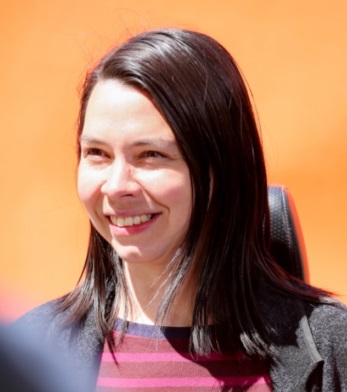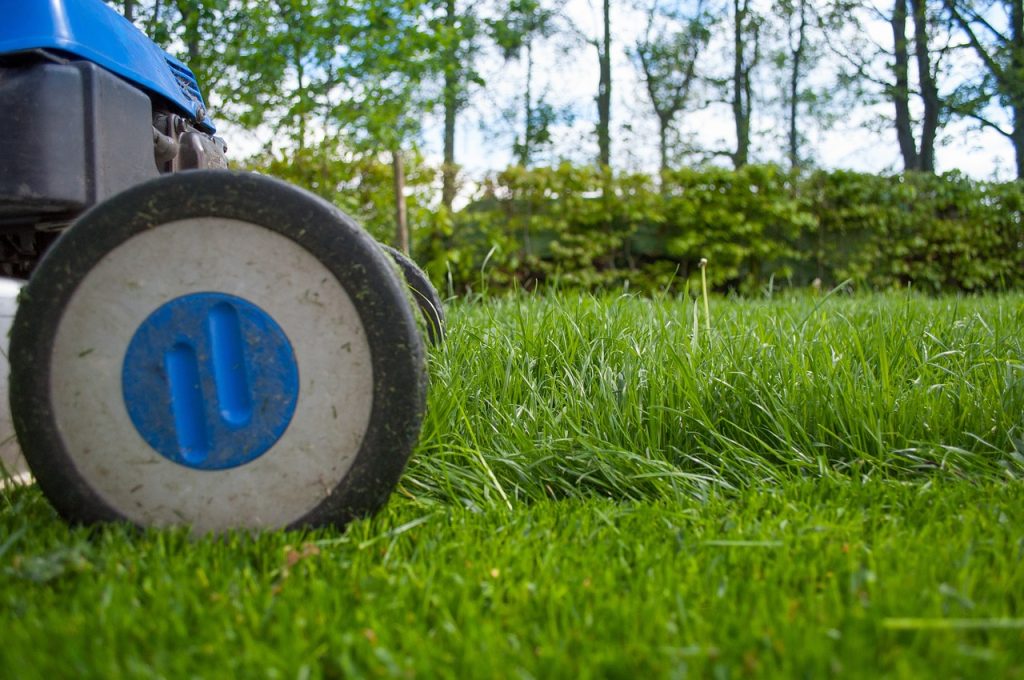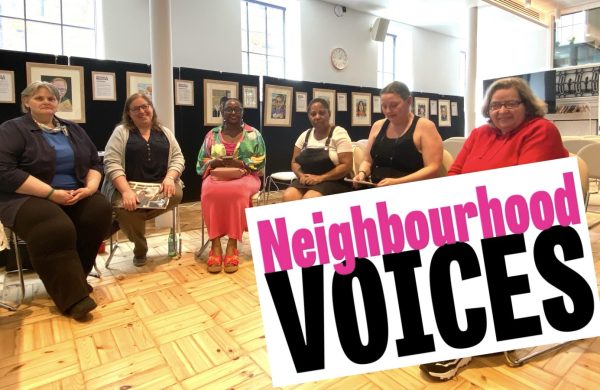Stories that challenge: Sarah and Rosie’s health
This is a guest series, of stories that challenge and change. These are intentionally contrary stories that push back against negative ideas, and force us all to re-examine negative stigmas and stereotypes. They are longer than our usual blogs, and we encourage you to read them when you have the time to do so in full.
 These stories are told by Stef Benstead, a social justice campaigner, Manchester Poverty Truth Commissioner, and an expert on the mistreatment of disabled people.
These stories are told by Stef Benstead, a social justice campaigner, Manchester Poverty Truth Commissioner, and an expert on the mistreatment of disabled people.

Meet Sarah
She’s definitely a scrounger. In fact, the street is full of them. You could make a programme about it.
They claim to be ill, and even walk slowly as if to make the point, but they’ve been seen to strim a lawn when they want to. Two of them are active smokers, so their difficulties are their own fault: if they stopped smoking, they’d have more health and more money. You can’t take seriously any incapacity for work that’s based on smoking.
Another one has been seen dancing in her garden, yet says she has major back pain. You couldn’t make it up. They’re all cheats. It’s no wonder the country is going to the dogs.
What people think they see
Sarah is one of the ones who can often be seen out gardening. And not just her own garden; she’ll be out in her neighbours’ gardens too, helping with those. Sometimes she’s behind a lawnmower; sometimes she’s digging out dock and brambles; sometimes she’s cutting down trees. You might see her out with a cocker spaniel, taking him to the local park, or walking to the nearby shops.
Most assessors, of course, know exactly what she is. But it only takes one to miss it, and let Sarah slip through the net, and give her benefits she shouldn’t get for longer than is appropriate.
The others know that someone as young and healthy-looking as her, bar paralysis or other identifiable injury, has no real reason to use a wheelchair. And when they ask her what she does, and she says that she does research on disability and social security, all their initial impressions are confirmed.

Who can measure another's pain?
This is someone who knows the benefits system well; who has made a practice of studying it; who has learnt the words to say and how to say them. Her words, therefore, can’t be trusted.
She is saying what she knows will get her benefits, not what is true about herself. So she is rejected for benefits, on the grounds that she looks healthy and therefore must be healthy, and she knows too much about her alleged illnesses and the benefits system to be telling the truth about them.
Of course, if you asked someone to declare how much pain another person was in based on how they look, they wouldn’t be able to do it.
Nor could they tell you how much dizziness that person feels, or whether it is more of a vertigo or a fug in the head than tingly dizzy. They couldn’t tell you whether the person feels sick, or hungry, has stomach pain.
You can’t look at someone and know anything about a vast range of health problems, injuries, and symptoms.
But that doesn’t stop you trying.
Rare conditions and lazy judgments
Sarah claims to have a condition that means her greatest pain and exhaustion come not at the time of activity, but a day or two later.
But that’s ludicrous. Whoever heard of such a thing? Certainly not any of the benefit assessors or appeal panel members who decide whether or not she deserves benefits.
They are of the opinion that if Sarah’s health declines, then that would be the appropriate time to claim benefits. But if she herself reports feeling fine now, in the moment, then she is fine.
And nor have any of the politicians who design benefit assessment processes heard of such a thing. What they have heard of, though, and told themselves, is people who have wrong attitudes and beliefs, who would be fit for work and able to look after themselves if only someone would tell them so.
When people like Sarah go out and mow lawns, or attend multi-hour meetings, it just reaffirms to observers that these people aren’t really ill. When they want to do something, they can; it’s only when they don’t want to do something that suddenly they are too ill.
It is a shocking moral laxity that needs to be rebuked and punished, not praised and rewarded, but sadly too many politicians of all stripes have been too lax in the benefits system. The assessment criteria need to be tightened, the money that is paid out needs to be cut, and these people need to be required to prepare and look for work in return for the money they receive.
Meet Rosie...

It is especially important that all this happens, so that people like Rosie can be properly protected and cared for. Rosie has a genetic condition called hypermobility Ehlers-Danlos Syndrome (hEDS). This affects collagen, and as collagen is everywhere in the body her condition has an impact on everything.
It is said that if you were to take everything else out of the body, the collagen remaining would create a perfect replica of what was there. It is in your skin, your blood vessels, your ligaments and tendons, and the fascia that embed and surround every organ and tissue. It is no surprise, then, that when collagen goes wrong, nothing goes right.
Understanding your own symptoms
Rosie experiences a wide range of diffuse symptoms. Fatigue, pain, nausea, dizziness, muscle weakness, difficulty eating, digestive problems, generic inflammation, and more.
It is difficult to test for and prove these things. But when they come together like this, alongside hypermobile joints and evidence of circulatory problems such as Reynaud’s Syndrome and Postural Tachycardia – all things which can be tested and demonstrated – then the diagnosis of hEDS is easy.
And then a whole load of seemingly nebulous and generic symptoms actually make sense and are explained and explainable.
Having a diagnosis makes a huge difference. It means that Rosie understands what is going on in her body when her lymph glands swell and she develops a sore throat and feeling of internal inflammation.
It’s not ‘flu or any other virus; it’s what her body does when she’s over-worked, and it can therefore be avoided by reducing activity levels to keep within what her body can do. Where a respiratory virus is avoided by being careful in crowded places and observing good hygiene, overwork needs a different response. So it is important to know the difference, in order to safeguard properly against it.
It means that when Rosie starts to feel depressed, despairing, or panicked, she knows it’s not usually about her emotional situation. It’s about having done too much over too long a period of time, and her body is rebelling and going on strike in defence against the over-bearing brain.
When the usual remedy for depression is to go out and be active, Rosie now knows that her depression is physical, and that the remedy is to go to bed. This in turn means that she can now stave off suicidality, by knowing that the answer is not to work harder but to work less.
Post-exertional malaise

Rosie experiences a classic symptom: post-exertional malaise (PEM). This symptom seems to be poorly understood by doctors, let alone benefit assessors, for whom the concept that activity now might cause worse symptoms tomorrow rather than in the moment is apparently bizarre.
But for people with Rosie’s and related conditions, it is extremely familiar. Doctors who understand Rosie’s condition usually have more familiarity with PEM, but still it is difficult to get across to someone who has never experienced it that you might feel okay today doing X, but tomorrow you will feel awful.
Whilst the answer to Rosie’s physical depression is to rest, that is nevertheless a boring and meaningless existence. And that itself brings depression.
So sometimes, Rosie has to find physical activity to do, that is enjoyable and meaningful, to counter depression that comes from doing, and being able to do, little. For Rosie, that might include gardening. Often this is done sat on the floor with a hand tool, because standing up causes Rosie’s heart rate to soar, and that is a sure trigger for PEM.
When the body battery crashes
One time, Rosie took out a lawnmower, creeping behind it very slowly, in order to help out a neighbour whose birthday was the next day and whose grass was overlong. Rosie’s heartrate hit 170bpm. The targeted heart rate for her age during high-intensity activity is 160.
Activity like that makes Rosie ill the next day. She has fibromyalgia as a consequence of over-working, physically and mentally, in her early 20s when she didn’t yet know that she had hEDS. This flares up as a result of activity and, despite her opioid patches, leaves her pacing the floor in tears if she has really overdone things.
Her body seems to act like it has a virus when it has done too much, with all the sore throat and fuzzy head and aching, heavy limbs and swollen glands that come with it.
Rosie recently acquired a second-hand fitness tracker, which confirms that overactivity makes her ‘body battery’ crash and stay down for days. Her resting heart-rate also increases during these periods.
Sincerity and scorn in one place
Someone like Rosie, presenting to a benefit assessor with only the list of generic symptoms, is easily dismissed as a fraud and malingerer.
The assessor, despite allegedly being trained to assess functionality and not diagnosis, nevertheless treats completely differently two people with the exact same symptoms, but one has a clear tested diagnosis, and the other has no diagnosis.
One is taken seriously and even recognised as having a lifelong condition. The other is scorned and rejected. The very same symptoms that confirm a genetic condition in the one are taken as evidence of laziness and hypochondria in the other.
See Sarah and Rosie together...
But Rosie is the same person as that malingerer, Sarah, whom we discussed earlier.
You can’t see any of Rosie’s symptoms: her pain levels; her fatigue; her brainfog; her internal inflammation, sore throat, and swollen glands; her drained ‘body battery’ or raised resting heart rate; the way her heart rate shoots up just because she’s upright. A tilt-table test proves the Postural Tachycardia (PoTS) (a heart rate that shoots up when upright), but not the actual debilitating symptoms it causes for Rosie, which might be different for someone else.
And when a doctor does a simple version of the test, asking Rosie to move from seated to standing, they have generally failed to account for the fact that for someone like Rosie, with severe PoTS, just being seated rather than lying down has already elevated her heart rate, so the scope for her heart to go even higher when standing is limited.
If they think they’re treating Sarah, not Rosie, then they dismiss the evidence for PoTS and tell her that her problems are all down to a lack of fitness.
Who do you see?

So the politician, the benefit assessor, the complaining neighbour, and even some doctors only see Sarah.
They never realise they’re dealing with Rosie. They never realise the harm that they cause with their misguided advice, such as to be active when Rosie desperately needs rest, which just makes her physical illness and therefore mental health even worse.
They never realise the impact of their misguided refusal to give Rosie enough money to live off in the belief that going out and getting work is what will make Rosie better, rather than driving her to such physical illness that she despairs of life.
They never realise the damage they cause when they phone the ‘benefit fraud’ hotline, to report Rosie for fraud, because they only see Sarah and not the desperate illness underneath.
In telling her story for this blog, Rosie remained seated with her legs on a footstool to help counter her PoTS. Keeping her legs horizontal helps to let her body know that it really doesn’t need to send the heart-rate so high. Nevertheless, Rosie’s heart spent most of the 30 minutes involved above 120bpm. She was suffering from particularly bad PEM, having over-done things whilst spending time with her two nieces over a week before, and from which her body had not yet recovered.
Dangers are caused when politicians do not understand people
This is the reality behind people like Sarah, and the neighbours you see out walking a dog or strimming their lawn or dancing in their garden.
This is why you will hear them sometimes talk about attending meetings. You see them engage in activity that brings meaning and joy to their life, enabling them to have a reason to keep going. What you don’t see is the impact on their body: the pain, the exhaustion, the inflammation, the inability to eat, the difficulty walking, the vertigo and dizziness and nausea.
You don’t know the price that these people pay to participate at least some times, on their terms, at their discretion.
This is nothing like attending work at someone else’s discretion, without the opportunity to engage only as and when able, or to rest and still remain financially secure.
But until politicians and public understand what it’s really like to be chronically ill, people like Rosie and Sarah will continue to be harmed by the dangerous policies.



